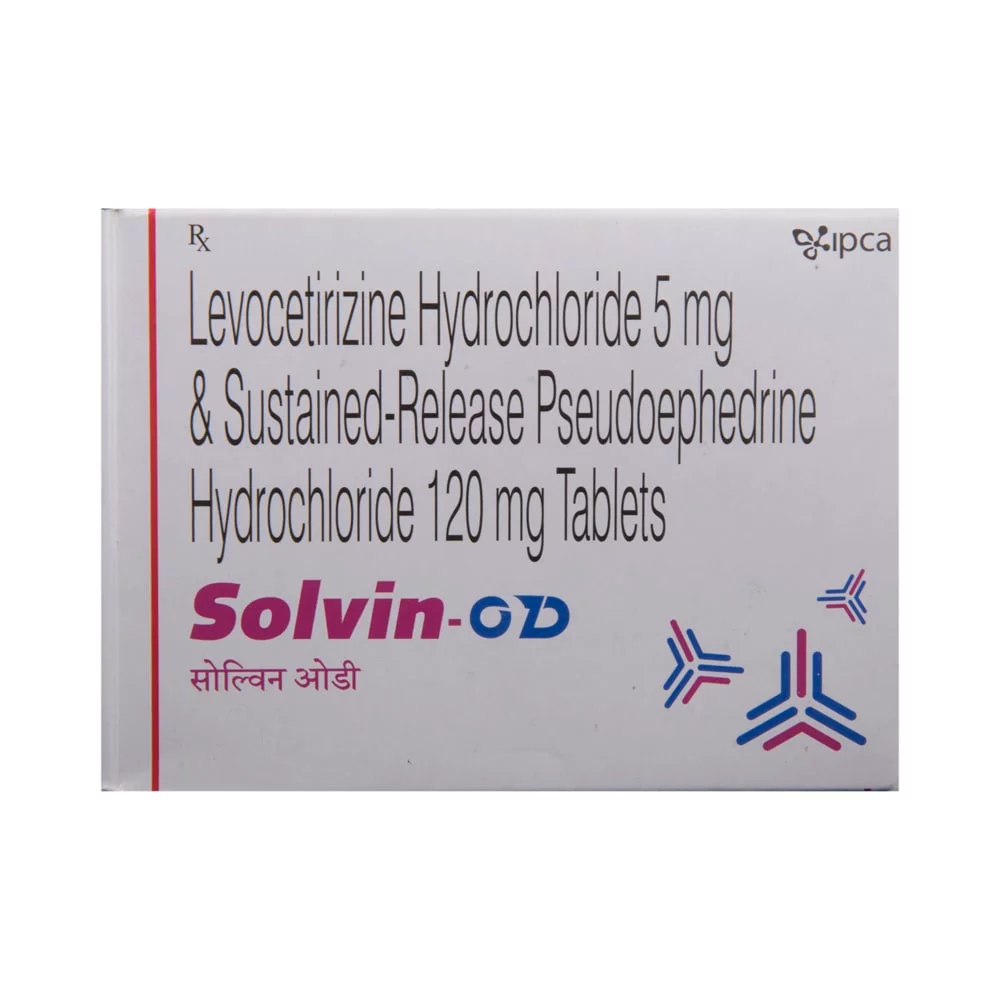“Comprehensive Overview of Levocetirizine and Pseudoephedrine: Pharmacology, Uses, and Safety Profile”
Levocetirizine & Pseudoephedrine Combination
This combination medication includes:
- Levocetirizine – a third-generation non-sedating antihistamine.
- Pseudoephedrine – a sympathomimetic agent with decongestant properties.
It is commonly used to treat symptoms of allergic rhinitis, including nasal congestion, sneezing, runny nose, and itchy/watery eyes.
1. Levocetirizine
Mechanism of Action:
Levocetirizine is the R-enantiomer of cetirizine. It selectively blocks histamine H1 receptors, which prevents histamine from causing allergic symptoms like inflammation, itching, and swelling.
Pharmacokinetics:
- Onset: Within 1 hour
- Peak effect: 1–3 hours
- Half-life: ~8–10 hours
- Excretion: Mainly via urine
2. Pseudoephedrine
Mechanism of Action:
Pseudoephedrine stimulates alpha-adrenergic receptors in the nasal mucosa, leading to vasoconstriction, which reduces swelling and nasal congestion. It also has mild beta-adrenergic effects.
Pharmacokinetics:
- Onset: 15–30 minutes
- Duration: 3–6 hours
- Excretion: Unchanged in urine (pH-dependent)
Indications (Uses):
- Seasonal allergic rhinitis
- Perennial allergic rhinitis
- Nasal congestion associated with allergies or upper respiratory infections
- Sinus pressure and congestion
Dosage (Typical):
Usually available in extended-release tablet form (e.g., Levocetirizine 5 mg + Pseudoephedrine 120 mg).
Adults and children ≥12 years:
- One tablet every 12 or 24 hours, depending on the formulation.
- Not recommended for children <12 years without medical advice.
Side Effects
Levocetirizine:
- Drowsiness (rare, less than other antihistamines)
- Dry mouth
- Fatigue
- Headache
- Dizziness
- Sore throat
Pseudoephedrine:
- Insomnia
- Nervousness
- Restlessness
- Increased blood pressure
- Palpitations
- Urinary retention (especially in men with prostate enlargement)
Precautions
- Hypertension or cardiovascular disease (due to pseudoephedrine)
- Renal impairment (adjust levocetirizine dose)
- Glaucoma
- Hyperthyroidism
- Prostatic hypertrophy
- Seizure disorders
Drug Interactions
- MAO inhibitors (e.g., selegiline, phenelzine): contraindicated within 14 days due to risk of hypertensive crisis.
- Other CNS stimulants or decongestants: risk of additive side effects.
- Alcohol: may increase drowsiness or dizziness.
- Beta-blockers: may reduce effectiveness or increase hypertension risk.
Contraindications
- Hypersensitivity to either drug
- Severe hypertension or coronary artery disease (due to pseudoephedrine)
- Severe renal impairment (for levocetirizine)
- Narrow-angle glaucoma (relative contraindication)
Pregnancy and Lactation
- Pregnancy: Category B for levocetirizine; pseudoephedrine is generally avoided, especially in the first trimester due to possible risk of abdominal wall defects in infants.
- Lactation: Both drugs can pass into breast milk; caution advised.
Storage
- Store at room temperature away from moisture and heat.
- Protect from light and keep out of reach of children.









Reviews
There are no reviews yet.